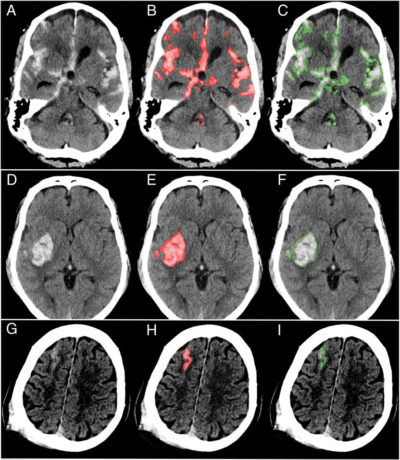Good for the image

Images A, D and G are the original brain scans. The red shading on scans B, E and H indicates hemorrhages as recognized by the algorithm; the green outline on images C, F and I shows hemorrhages as determined by neuroradiologists. (Photos courtesy UCSF)
Radiologists can review thousands of brain images each day, searching for minute signs of traumatic brain injuries, strokes and aneurysms. Now, Berkeley researchers, working with scientists at UCSF, have developed a computer algorithm that could help radiologists focus on the most important images and examine them more closely. Using artificial intelligence to more efficiently and accurately recognize abnormal CT scans, the team’s algorithm took just one second to identify head scans with signs of hemorrhage — even some that experts missed. For each abnormality, the algorithm also provided a detailed outline, location and subtype, which could help physicians quickly determine the appropriate treatment. According to study co-author Jitendra Malik, Berkeley professor of electrical engineering and computer sciences, the researchers were able to use a small number of images to train the algorithm by using a type of deep learning known as a fully convolutional neural network, or FCN. In these training images, each small abnormality was manually delineated at the pixel level, helping to create an extremely accurate algorithm.
